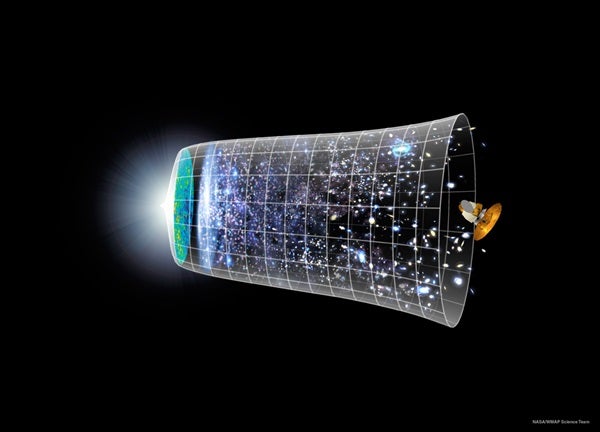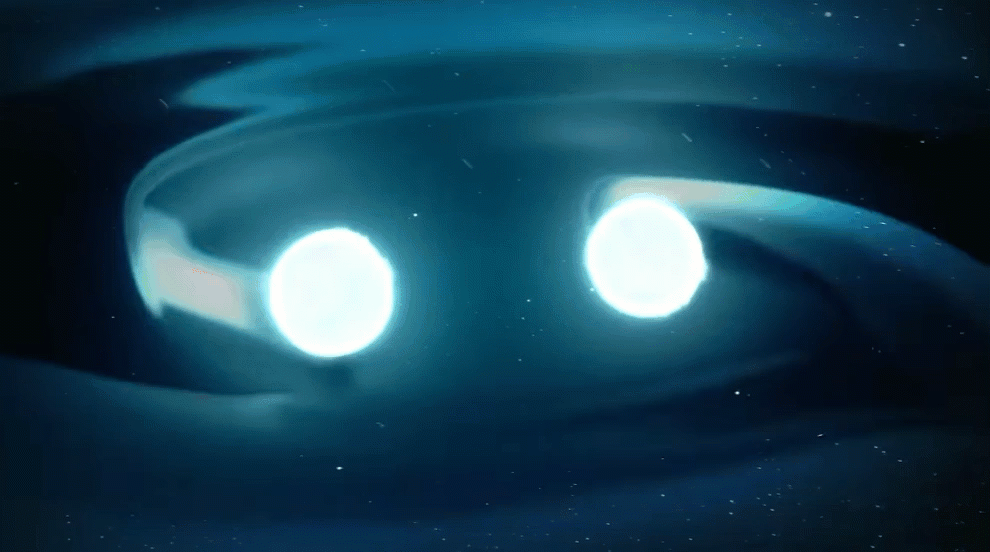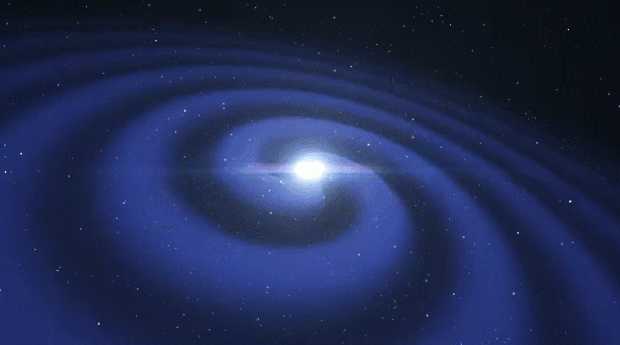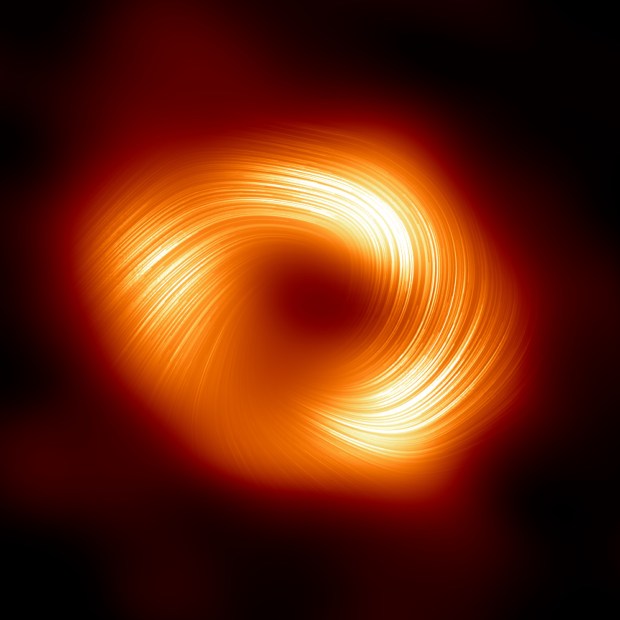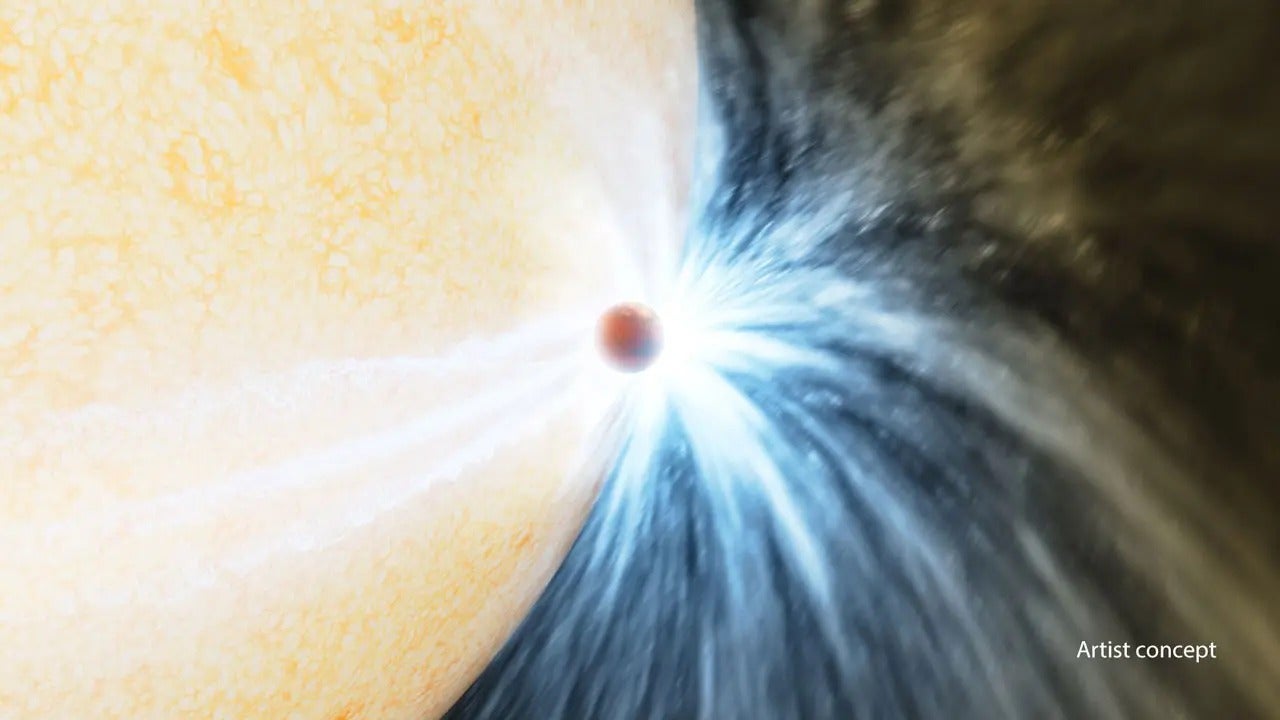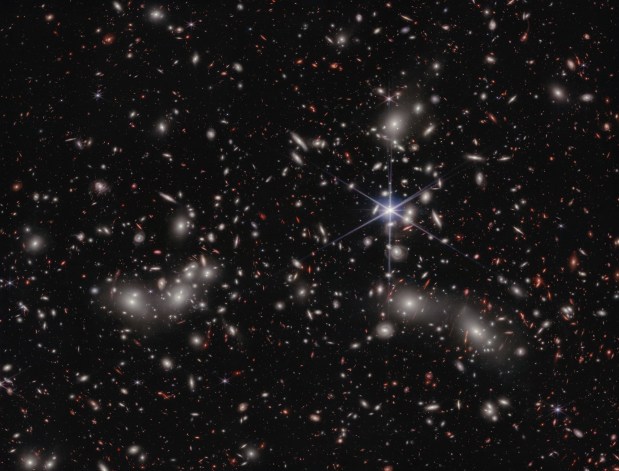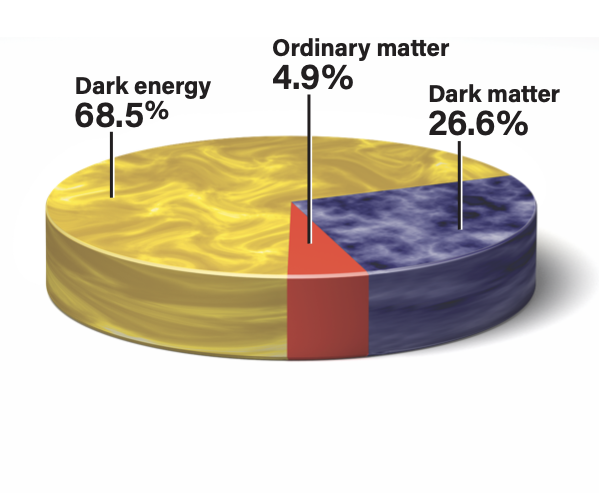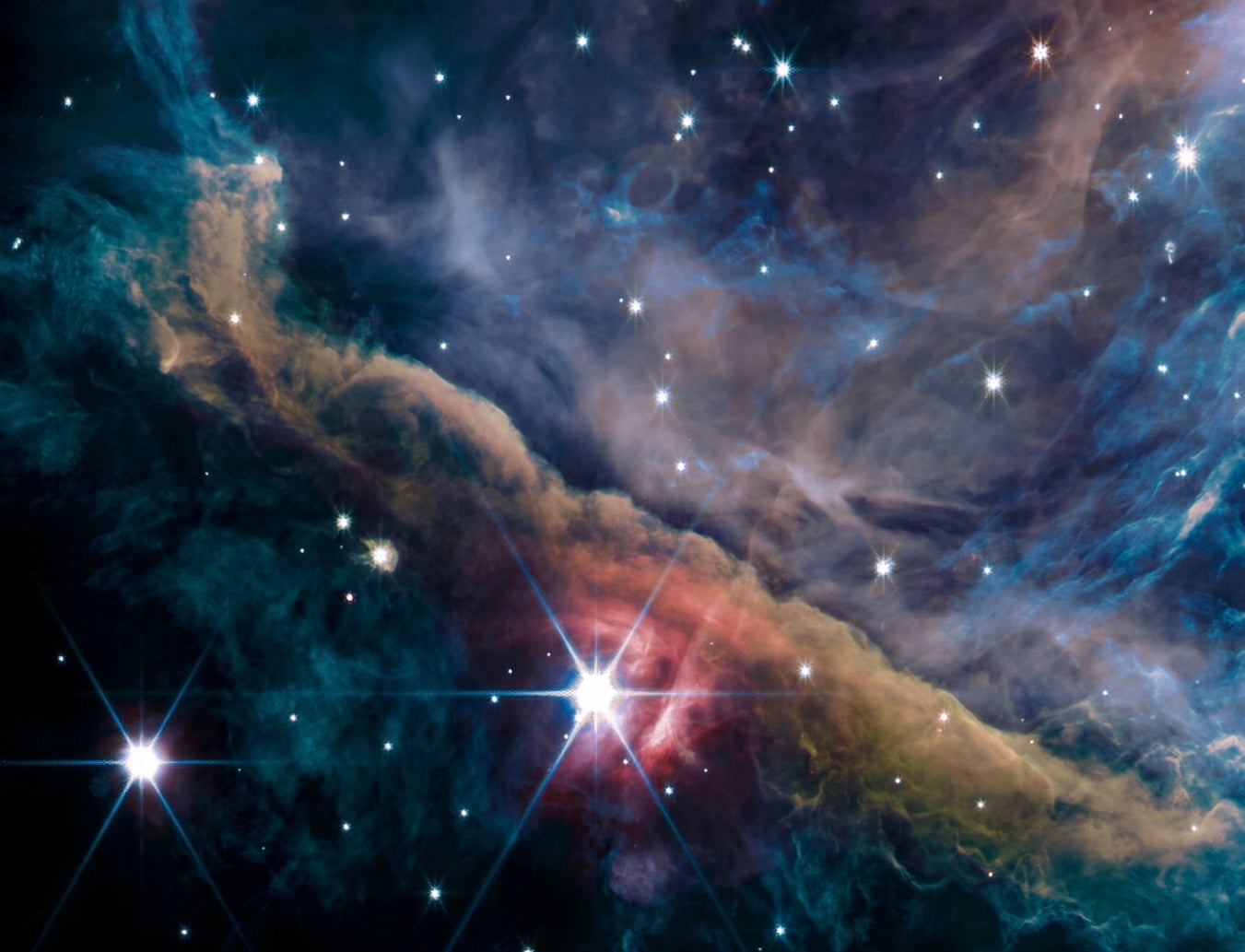Could the strangest thing in the universe be the universe itself? You be the judge.
The branch of astrophysics called “cosmology” — which is not about hairdressing and permanent waves, but the study of the universe as a whole — regards the cosmos as a single entity. Meaning, everything was born together and shares universal properties. The cosmos didn’t just leak in here drop by drop from another dimension, as the steady state theory suggested. Instead, by this thinking, the nature of space, the speed of light, and the value of such constants as gravity are identical everywhere. In short, we truly live in a UNI-verse where E Pluribus Unum rules, a oneness out of which the many stars and planets are free to experiment and frolic.
If the universe consists of a single entity, then any physical truth that applies to our galaxy, such as the strength of the four fundamental forces, is identical everywhere else, and throughout all of time. Such a view has dominated astronomical thought for centuries — despite a few physicists periodically questioning it.
In the 1930s, future Nobel-winner Paul Dirac wondered whether time has always passed the same way, even in the early universe, and whether light’s speed is truly constant. In 2010, New Zealand astronomers uncovered evidence that the strength of the fine-structure constant, which governs the force of electromagnetism, was slightly stronger in the distant past than what we observe now — but only in the northern direction. Looking at faraway southern galaxies, the force was weaker long ago. If confirmed, this would suggest that the universe has different neighborhoods. Our region of the cosmos might have the specific properties that allow life to arise because this is a special and unique place in space and time.
Despite such doubts, the cosmos certainly appears to have many characteristics that are indeed the same always and everywhere. Until recently, one universal reality that seemed inarguable was that the cosmos’ expansion is slowing down.
The Big Bang theory — which is strongly supported by the cosmic microwave background and the omnipresent expansion — says that starting 13.7 billion years ago, everything initially raced outward from everything else like an inflating balloon. (Don’t ask what the universe expands into. There is no “outside” to the cosmos, and such a perspective is nonexistent. Instead, picture each galaxy cluster increasing its distance from all others, like raisins within a loaf of bread as it’s baked.)
The cosmic expansion was explosively rapid at first. But the gravitational attraction of every galaxy on every other kept tugging at this expansion like a rubber band, slowing it down. Astronomers spoke of a “deceleration parameter” that quantified the amount of this reduction in speed. The big question of the 20th century’s last half was: Will everything come to a stop in the far future? Will the cosmos then go the other way, and collapse into a “Big Crunch”?
Until 1998, nobody entertained a different and illogical possibility. But then, two teams of astronomers, examining the brilliant lights of past supernovae to obtain better-than-ever determinations of galactic distances, independently came to an astonishing conclusion: The universe indeed slowed its expansion during the first half of its life. But then it stopped slowing. Some 6 or 7 billion years ago, galaxies everywhere started speeding up their expansion from their neighbors. As the eons passed since then, this expansion has accelerated until, now, all galaxies fly away from each other in an ever-increasing frenzy.
We know this is impossible. Galaxies don’t have rocket engines attached to them. What could possibly make them zoom faster and faster? And yet, this is exactly what astronomers seem to be observing everywhere they look.
Since nobody has a clue to what’s going on, scientists posit that space itself must have an anti-gravity, repulsive property, which they call “dark energy.” They assume this dark energy was responsible for blasting out the cosmos in the Big Bang, but that it then lost its dominance to gravity. When galaxies grew far enough apart, so that empty space started to control the picture, this anti-gravity force again gained the upper hand. Now, it pushes harder and harder, and everything will explosively fly apart forever.
Lest the concept of a darker and ever-lonelier cosmos drive you to antidepressants, be aware that much remains unknown about dark energy — well, everything, actually. Because it takes quite a bit of oomph to blow a universe apart, we know that this entity must constitute 74 percent of the mass-energy of the entire cosmos. Dark energy, whatever it is, must be nature’s dominant item. But for all we know, it might weaken or even reverse itself over time. Perhaps the cosmos could eventually cease racing and come back together, after all.
Do you find this just a tad peculiar? You’re not alone. That’s why the accelerating universe can’t be cheated of a place at the podium on our 50 Weirdest countdown, in our theater of the bizarre.


